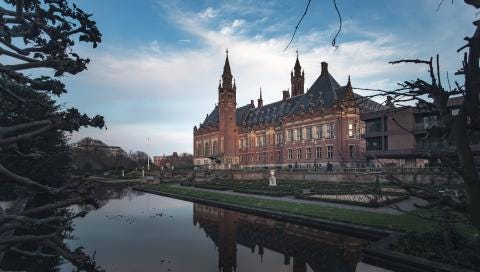Lawfare and a Legal Cold War: How the ICJ and Global Legal Bodies Are Being Used Against America and Allies
When Nicaragua filed a case against Germany at the International Court of Justice (ICJ), accusing Berlin of facilitating genocide in Gaza, it raised eyebrows in Western capitals. Some media reports suggested Russia was behind the move, using Nicaragua as a proxy to target Germany and, by extension, the West. But this was nothing new for those familiar with the historical playbook of asymmetric power struggles.

For centuries, weaker states and non-state actors have used unconventional means to challenge dominant powers. The Cold War epitomized this dynamic—proxy wars, ideological battles, and legal disputes became key tools to counter American supremacy. What we see today—from Nicaragua’s ICJ gambit to accusations of Russian involvement in Havana Syndrome incidents to propping up a criminal network in oil-rich Venezuela—is a continuation of that same strategy: when you can’t compete head-on, you adapt.
Institutions like the ICJ, the United Nations, and the Organization of American States (OAS) were created with noble intentions. Yet, over time, they have been weaponized—often against the very powers that helped build them, particularly the United States and its allies. In some cases, this happened because Washington ceded ground through inaction or went along with Democratic-led internationalist agendas.
Keep reading with a 7-day free trial
Subscribe to The Poblete Dispatches to keep reading this post and get 7 days of free access to the full post archives.



